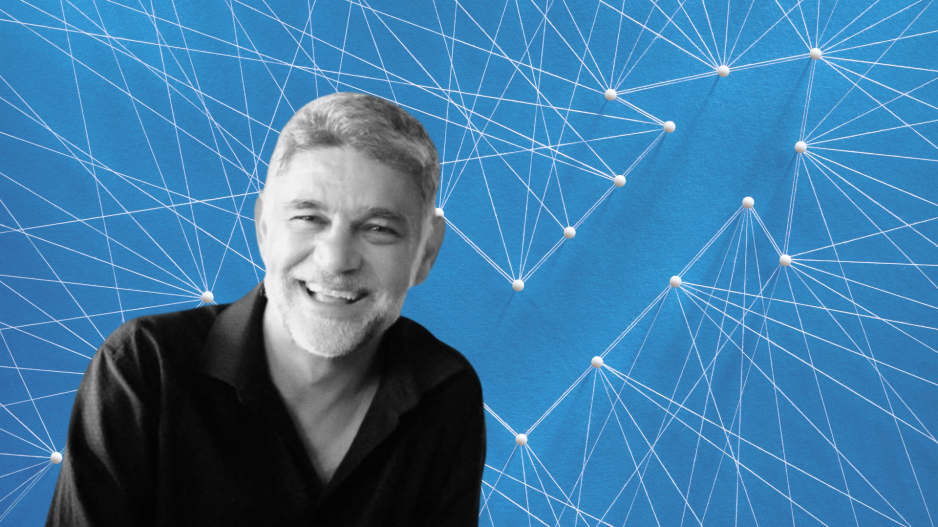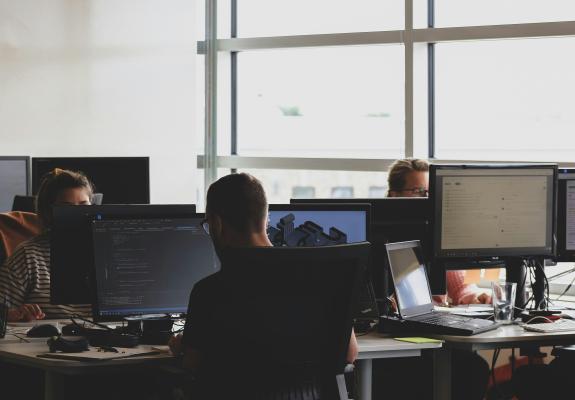Costas Constantinides: "In Cyprus, Imagination and Education Rarely Meet on the Same Page"
Lighthouse Private School Founder and General Facilitator Speaks on Redefining Education, Cultivating Curiosity, and the Role of AI in Classrooms
Last May, at the TechIsland Summit, one of the standout talks for me was by Costas Constantinides, founder and general facilitator of Lighthouse Private School in Limassol. His delivery style was quite unique—effortlessly weaving in and out of the panel's theme, "Breaking Barriers: Addressing School Shortages to Boost Cyprus's Tech Economy," while always keeping sight of the panel’s broader context. After all, when the founder of a private school begins his panel contribution with “Prioritizing profit over people is wrong in education,” you can be sure he’ll hold your attention for the remainder of his speech—which, indeed, he did not disappoint.
Today, Mr. Constantinides is featured on FastForward, where, in his distinctive way, he discusses the educational system, the importance of socially conscious learning, the new era of AI, and how to bring to life one of his favorite mottos, "schooling is dead; long live education." This vision holds particular relevance in Cyprus which sees its PISA evaluation indicators consistently rank near the bottom.

I realized that a tremendous amount of abuse comes from misunderstanding; that our current educational experience does not really value the human component. We are not taught to be good listeners; to validate, to differentiate between the subjective and objective. So in the end we take and make everything personal. If we learn to depersonalize, recognize and replace our reactions, and commit to seeing everyone’s needs as equally valid then we can take society to the next level! These skills should be central in any and every curriculum.
We are reinventing the wheel; we believe children should be encouraged to follow their curiosity yet learn how to ask the right questions in the process. In fact, figuring out how to ask a question is a Critical Thinking Skill that we believe will be part of the foundation of all future Curricula.
The era of ‘having to be taught’ is over. As we like to say; ‘Schooling is dead - long live Education'
Instead of following a dry, often irrelevant, teacher-led lesson plan, when students get to explore their own interests or seek motivating challenges they are absolutely willing to learn. The era of ‘having to be taught’ is over. As we like to say; ‘Schooling is dead - long live Education.’
As we move away from simple knowledge-based, competitive schooling to open-minded and open-ended exploratory or evolutionary (as I like to think of it) learning we believe students will naturally ask why is the world not better than it is? Why is there injustice? As they go through this process they soon realize that unless we each take on responsibility to seek a solution, we are contributing to the problem. As such the challenge may be a project about how to design and implement a prosthetic limb for a needy dog or it may be about how to permanently solve the trashy state of Cyprus. Perhaps even to abolish the veto in the UN Security Council. Why not? Societies are also organic and we are the cells that make up those organs. Change the cells and you change the organ.
This is going to be necessarily messy. But if we are serious about asking the toughest of questions we need to start with the simplest; “What does an ideal Education look like?” For me this is the Evolutionary approach which emphasizes Creative and Critical Thinking (CCT).
Evolution never relies on any one system ‘to get the job done’
It’s no longer a matter of what questions we can answer but what questions we can ask! To arrive at this the government (good luck!) needs to set up AND SUPPORT a group of 4-5 pilot schools that aim to answer the original question in their own way. Evolution never relies on any one system ‘to get the job done.’ Quite the opposite; the greater the variety and versatility the better. In Cyprus imagination and education rarely meet on the same page let alone sentence!
Well for a country to adopt it I refer you to my earlier answer. Regarding how an individual school can ‘embrace the change’ we first need to accept that schools are no longer fit for purpose. One day a week (at least) should be given over to ‘experimentation’ where the students are given, as far as safely possible, complete agency of their learning. Furthermore the day can be structured around a specific challenge that requires both a need to engage in learning (knowledge acquisition) but also to explore problem solving skills which come from CCT. The success of this can be measured by how many and what kind of skills the students SELF-TEACH within a given period. Better yet, we could measure success in how many ‘damn good questions’ they need to pose to achieve their objectives! Then we could observe how methodically and effectively they answer them.
Let’s agree first that AI is still but a child; an Alien and very young child! So, just as a human baby gives very few clues as to its vast potential, AI has yet to reveal its true nature as an Alternative Intelligence that will massively surpass us in most everything within 10-15 years. Just think of chess as a simple example! Given this reality we need our children to learn ‘How to Train your Dragon.’ We need dragons (AI agents) that specifically help us recognize and develop our CCT.
The sooner we learn how to envisage this partnership, the sooner we will discover the true potential of Education
As we learn to better its capabilities it will help us exponentially develop our own. It’s ‘a dragon and the egg’ story, and the sooner we learn how to envisage this partnership the sooner we will discover the true potential of Education.







